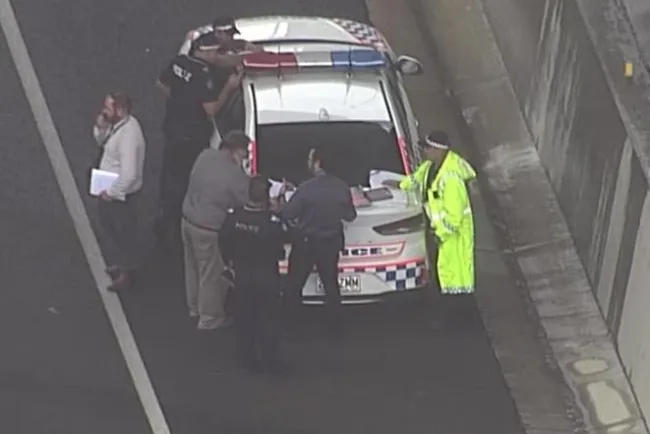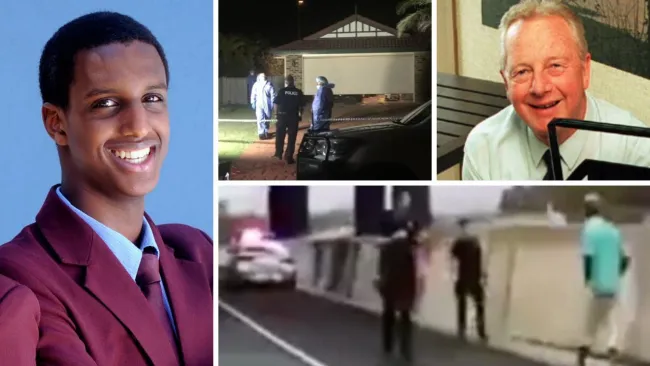Blood-Soaked Terror Unleashed: The Shocking Transformation of Raghe Mohamed Abdi
In a blood-soaked episode that sent shockwaves through Brisbane, Raghe Mohamed Abdi, labeled by authorities as the assailant responsible for the brutal slaying of elderly couple Zoe and Maurice Antill, is now being portrayed as an individual who was "absolutely radicalised." Shot by the police on the Logan Motorway the day after the heinous crime, Abdi's ideological motivations are under scrutiny in a tense inquest led by the Deputy State Coroner.
The elderly couple, both in their late 80s, met a gruesome end in their Parkinson home, victims of a stabbing frenzy unleashed by Abdi the night before. The horror escalated as Abdi, armed with a knife, met his demise on the side of the motorway in Drewvale. The connection between these incidents was swiftly declared a "terrorism event" by investigators.
Unveiling a chilling narrative, the inquest reveals that Abdi, 22, was on bail at the time and was being monitored by police and counter-terrorism officers. Stripping off his GPS tracking device just hours before his fatal confrontation with law enforcement, Abdi's actions paint a portrait of a man plunging into the depths of radicalization.
Lecturer in Terrorism and National Security, Levi West, took the stand, presenting a bone-chilling analysis of Abdi's ideological journey. Confirming that Abdi was "absolutely radicalised" at the time of his death, West suggested that some of his actions were "likely motivated at least in part" by extremist religious views.
West pointed to Abdi's repeated shouts of "Allahu Akbar" during the fatal confrontation as a potentially chilling sign of ideological motivation. While acknowledging the term's common usage, he highlighted its "hijacking" by extremists to signify engagement in acts of Jihadist terrorism.
The expert contended that Abdi had been exposed to extremist views through acquaintances, notably influenced by an individual from a south-east Queensland mosque charged with terrorism offenses. Though West conceded it was impossible to definitively ascertain Abdi's state of mind, he asserted a "high likelihood" that the motorway incident was ideologically motivated.

In a perplexing twist, West introduced the notion that Abdi's motivation might have been driven, in part, by a desire to end his own life, a choice not sanctioned by the Muslim religion. Engaging law enforcement in a scenario where death was likely could, according to West, provide an escape from the suicide dilemma.
However, despite the ominous signs and West's assertions of radicalization, he admitted under cross-examination that there was "very little" to no evidence linking the earlier stabbings to Islamic State ideology. While acknowledging the brutality of the killings mirrored Islamic extremist propaganda to some extent, West remained cautious in tying the act definitively to radical motivations.
As the inquest unfolds, the shadows surrounding Abdi's motivations and the gruesome killings of Zoe and Maurice Antill remain elusive, leaving a community gripped by fear and uncertainty.
